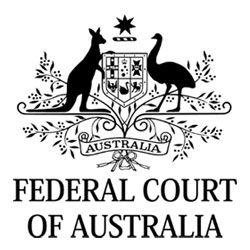ATO Loses Key Division 7A Case – What It Means for You
Robert
February 24, 2025

On 19 February 2025, the Full Federal Court delivered a landmark decision in Commissioner of Taxation v Bendel [2025] FCAFC 15, significantly impacting how unpaid present entitlements (UPEs) from trusts to corporate beneficiaries are treated under Division 7A. If you’re a small business owner or have a trust structure in place, this ruling could change how you manage distributions and tax obligations.
What Was the Case About?
The dispute centered on whether a UPE – where a trust allocates income to a corporate beneficiary but doesn’t immediately pay it – should be classified as a “loan” under Division 7A of the Income Tax Assessment Act 1936.
The ATO has long held the position that these UPEs are effectively loans and should be subject to Division 7A, meaning they could be treated as deemed dividends and taxed accordingly. However, the Full Federal Court disagreed, ruling that a UPE does not constitute a loan for Division 7A purposes, as there is no repayment obligation—only an entitlement to receive funds in the future.
What This Means for Business Owners and Taxpayers
If you use a discretionary trust with a corporate beneficiary, this decision is a game changer:
-
- Less Immediate Tax Exposure – Previously, trusts distributing income to corporate beneficiaries often had to enter Division 7A loan agreements or risk extra tax liabilities. This ruling suggests that may no longer be necessary.
- Less Immediate Tax Exposure – Previously, trusts distributing income to corporate beneficiaries often had to enter Division 7A loan agreements or risk extra tax liabilities. This ruling suggests that may no longer be necessary.
-
- Opportunity to Review Past Arrangements – If you’ve been treating UPEs as loans and structuring repayments to comply with Division 7A, it might be worth revisiting those tax positions to see if amendments or adjustments make sense.
- Opportunity to Review Past Arrangements – If you’ve been treating UPEs as loans and structuring repayments to comply with Division 7A, it might be worth revisiting those tax positions to see if amendments or adjustments make sense.
-
- ATO Guidance Could Change – While the ruling is clear, the ATO could update its approach, meaning businesses should stay alert for further announcements.
What’s Next? Will the ATO Fight Back?
This decision is a blow to the ATO’s long-standing stance, so expect them to respond. Possible next steps include:
-
- Appealing to the High Court – The ATO may seek special leave to appeal, though given the clarity of the ruling, success is uncertain.
- Appealing to the High Court – The ATO may seek special leave to appeal, though given the clarity of the ruling, success is uncertain.
-
- Legislative Changes – The government could amend tax laws to bring UPEs under Division 7A explicitly.
- Legislative Changes – The government could amend tax laws to bring UPEs under Division 7A explicitly.
-
- Revised ATO Guidance – The ATO will likely update its administrative positions, possibly tightening compliance in other ways.
Where Does This Leave You?
If your business or investments involve trusts and corporate beneficiaries, now is the time to assess your tax planning. The Bendel decision provides an opportunity to rethink structures and ensure compliance while minimizing unnecessary tax burdens. If you’re unsure how this affects you, let’s chat—now’s the perfect time for a review.
